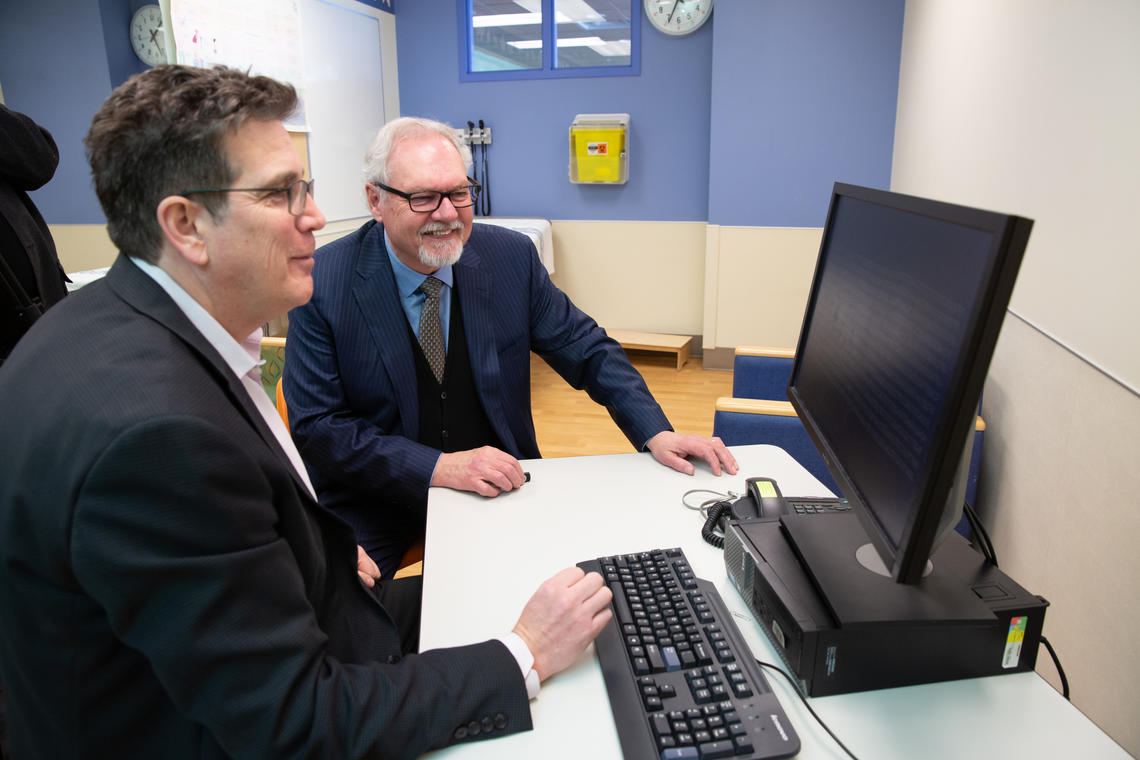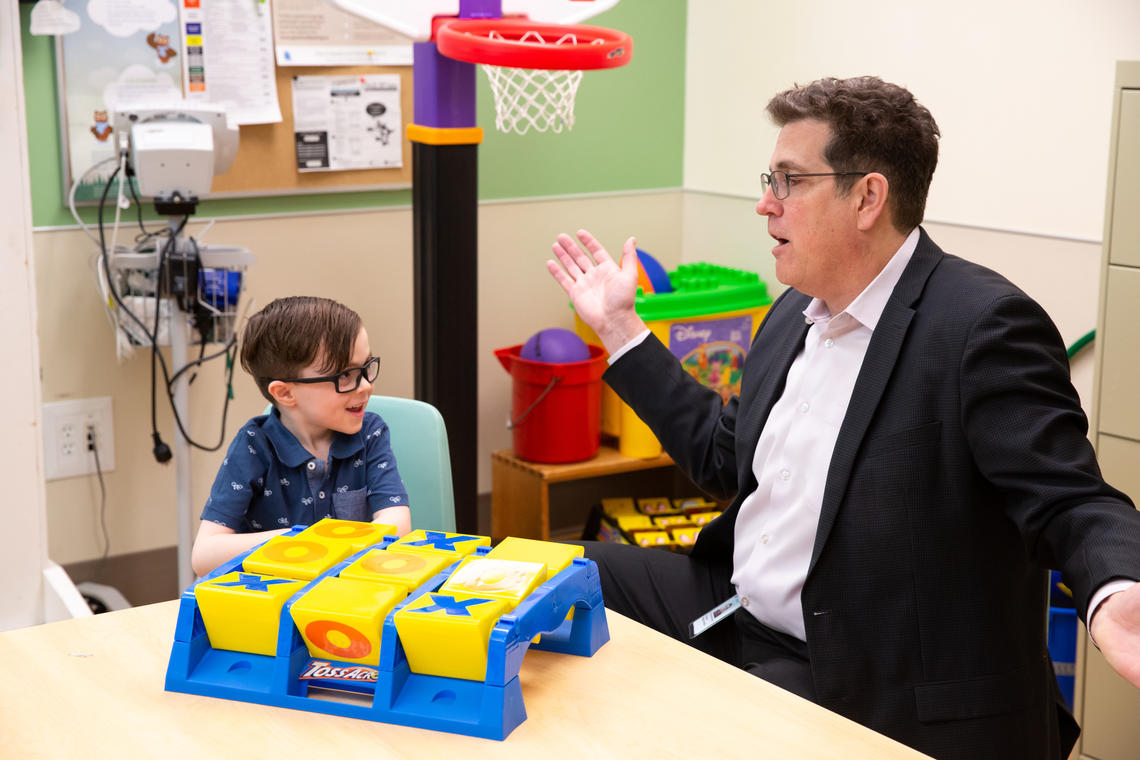March 11, 2020
UCalgary research and diagnostics collaboration to benefit families throughout Alberta

When Madden Ellis Garraway was two years old, he came down with a virus he couldn’t shake. He was admitted to the Alberta Children’s Hospital (ACH). Even with highly specialized care, his weight fell to within ounces of his birth weight of seven pounds, six ounces.
“The tubes he was attached to weighed more than he did,” says Danielle Garraway, Madden’s mom. “It was awful. We didn’t know what was wrong with him.”
Madden would spend the next six months in hospital.
- Photo above: Pat Garraway with his son Madden. Photo by Riley Brandt, University of Calgary

Francois Bernier and David Bailey from Genome Alta. discuss the benefit of doing sequencing here.
Riley Brandt, University of Calgary
“We’d been seeing doctors and specialists since Madden was born because he wasn’t thriving and had developed a terrible skin condition,” says Garraway.
Solve medical puzzles sooner
Dr. Francois Bernier, MD, calls it the diagnostic odyssey: a long, difficult, and tiring journey many families endure while medical professionals seek to find a solution to what is causing health issues in their child. Bernier says a new partnership between the University of Calgary, University of Alberta, and Alberta Precision Laboratories (APL) will help families and medical professionals get answers to these diagnostic puzzles, sooner.
With funding from Genome Canada (through Genome Alberta), the Alberta Children’s Hospital Foundation, and other partners, clinical genome sequencing will be available for rapid effective diagnostic testing.
“There are so many families waiting for answers to serious medical conditions,” says Bernier, head of the Department of Medical Genetics and professor in the Department of Paediatrics at the Cumming School of Medicine (CSM).
Access to gene sequencing early in the medical journey can pinpoint the best treatment approaches and therapies to target the illness.
Access to this technology can also result in significant savings to the health-care system by eliminating years of testing, countless physician visits and various treatment regimens.
“We have the expertise right here in Alberta and we are building on an academic-health care collaboration to benefit our patients,” says Dr. Dennis Bulman, PhD, medical/scientific director of genetics and genomics for APL.
Until now, large-scale genome sequencing tests were often sent to labs in the United States for analysis, like in Madden’s case. However, even his commercial testing was still negative, further extending his diagnostic odyssey. Madden was eventually diagnosed in under a week when he was enrolled in a genomics research project at ACH. Having the tests done here benefited Madden and other Canadian children.
“When we send specimens outside of Canada for analysis, we lose the ability to build a database here that has the potential to help other families and inform research,” says Bernier, who is a member of the Alberta Children’s Hospital Research Institute, and the Owerko Centre at the CSM.
The results of Madden’s test confirmed a rare genetic condition called immune dysregulation, polyendocrinopathy, enteropathy, X-linked (IPEX) syndrome. The immune disorder most commonly affects males and can be life-threatening. Madden required a bone marrow transplant.
Dramatic improvement in Madden's life
Fast-forward almost four years, and Madden is about to celebrate his sixth birthday.
“I can’t believe the difference in him, he’s thriving and on the days he has almost too much energy to handle, I remind myself there were lots of days I was wishing he had energy,” says Garraway. “Now I’m grateful, energy is a good problem to have.”
Madden’s diagnosis led to a new diagnosis for his cousin, too. From the beginning, Madden’s parents said he reminded them of his cousin, who was nine and had been diagnosed with celiac disease, but diet alone wasn’t keeping his stomach inflammation at bay. His cousin also tested positive for IPEX syndrome, and underwent a bone marrow transplant. Now he, too, is thriving.

Francois Bernier gets “bested” by five-year-old Madden at X's and O's.
“These programs bring amazing genome technologies to the doorstep of both our clinics and research programs. Our state-of-the-art genome sequencing equipment will benefit clinical care and research programs in genetic diseases, cancer and the microbiome,” says Bernier. “We are so lucky to have the support of our community that enables these amazing programs. This investment really will transform health care on a national scale and improve the lives of Canadians.”
Infections, Inflammation and Chronic Diseases
The University of Calgary is uniquely positioned to find solutions to key global challenges. Through the research strategy for Infections, Inflammation, and Chronic Diseases in the Changing Environment (IICD), top scientists lead multidisciplinary teams to understand and prevent the complex factors that threaten our health and economies.

A normal visit instead of a stay at the hospital.






